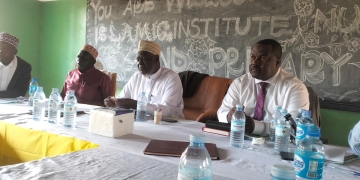
KAMPALA —The National Coffee Bill has ignited a contentious debate in Uganda, pitting legislators advocating for the Uganda Coffee Development Authority’s (UCDA) autonomy against the government. The dispute centers on control, economic interests, and historical tensions over land and resources, particularly for Buganda leaders
Control Over Coffee Production and Sales
The bill grants the government significant regulatory powers, including licensing, registration, and production standards. Buganda, with its deep cultural connection to coffee farming, views this as an encroachment on its autonomy. The kingdom fears these regulations may erode farmers’ bargaining power, diminish local leaders’ influence, and disrupt traditional practices.
Threats to Smallholder Farmers
Smallholder farmers dominate Uganda’s coffee production. The bill’s stringent requirements for registration, grading, and quality control may favor large commercial enterprises and foreign investors, potentially squeezing out smaller local players.
Economic Concerns and Market Monopolies
Critics argue that the bill enables monopolies over coffee processing and export, concentrating wealth in the hands of a few entities, potentially controlled or influenced by the central government. This may result in lower prices for local farmers due to restricted market access and government interference in pricing.
Historical Tensions and Autonomy Issues
Buganda’s relationship with the central government has long been marked by autonomy struggles over land, cultural rights, and economic resources. Coffee, a vital economic asset, is entwined with this historical context. Buganda believes decisions affecting coffee production and trade should involve local leaders, and the bill infringes on their self-governance.
Lack of Consultation and Representation
Stakeholders claim they were not adequately consulted during the bill’s drafting, fueling frustration and perceptions of disregard for their input.
Concerns Over Exploitation and Unfair Taxes
New registration fees and taxes proposed in the bill may exploit small farmers and increase production costs.
In my opinion, opposition to the coffee bill stems from concerns about autonomy, economic justice, and protecting local farmers. For Buganda, coffee is an economic foundation and cultural symbol. By challenging the government, Buganda voices broader concerns about local control, fair economic policies, consultation, exploitation, and preserving traditions.
To address these concerns, the government should adopt a multi-faceted approach, incorporating strategic recommendations, advisory bodies, and structured training. Establishing a Coffee Policy Advisory Council with diverse stakeholders would provide comprehensive insights and recommendations on policy implications for coffee production and farmers’ livelihoods.
The writer, Isa Kato, is a coffee consumer and a tourism sector leader.










